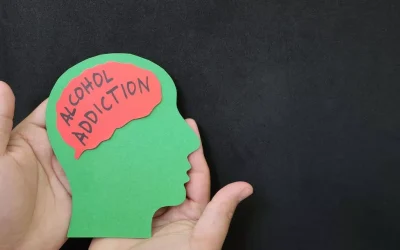This is due to the fact that alcohol addiction can damage the brain over time. There are a number of different supplements that can help improve cognitive function and brain health. The symptoms of brain fog from alcohol can vary depending on the individual. This is because chronic stress can lead to adrenal fatigue, which can cause symptoms like forgetfulness, poor concentration, and irritability.
Risks and Complications
Your journey to recovery might be challenging, but it is necessary so you can regain control of your health and future happiness. You may experience withdrawal symptoms, including what they call “brain fog.” Brain fog from alcohol withdrawal can cloud your cognitive abilities and impact your daily life. Your habits before you came to the treatment center can also contribute to brain fog. Many people with an alcohol addiction are malnourished, and it is possible that your body does not have the nutrients it needs for proper brain functioning.
Risk factors

Withdrawal seizures are most typically experienced 24 to 48 hours after the last drink. You may also receive other medications or treatments for related health issues, like IV fluids for dehydration and electrolyte imbalances or antinausea medicines if you experience vomiting. Each of these symptoms can increase in intensity depending on the severity of the withdrawal. So even though you may have spent years working to destroybrain cells, your brain can still heal, so long as it’s given the opportunityto do so.
- Signs of brain fog include reduced cognitive functioning or difficulty with paying attention, keeping focus, multitasking, and memory recall.
- After the acute phase of withdrawal, a person may still need professional medical care, as PAWS symptoms can be severe and affect the quality of life.
Consider starting a healthy withdrawal program
It’s also important to note that delirium tremens can be life-threatening. It’s important to be honest about your alcohol use — and any other substance use — so your provider can give you the best care. Alcohol detoxification, or simply detox, is a process of navigating through alcohol alcohol withdrawal brain fog withdrawal. This is because alcohol has a dehydrating effect on the brain, which can cause cells to shrink. As the cells shrink, the brain’s ability to process information is impaired. This can lead to difficulty concentrating, memory problems, and other cognitive issues.

The symptoms lasted from 6 months to more than 23 years, with a median of about 6.5 years. Also, a person may have a higher risk of developing PAWS, or the symptoms may be more intense, when the misused substance was alcohol, opioids, or benzodiazepines. For all AUD patients, the maximum Cushman score and the number of previous detoxifications were collected.
- Taking proper steps to treat these issues can help minimize its duration.
- Having a strong self-care routine, working with medical professionals, and having support from people who understand can help.
- Several rehab detox centers are there to provide personalized treatment plans.
- If you’re planning on decreasing your dependence on alcohol, consult your doctor.
During alcohol withdrawal, the glutamate-mediated excitotoxicity induces neuronal death, which may explain structural brain alterations observed early in abstinence in AUD patients (Tsai and Coyle, 1998). The frontal lobes being particularly rich in glutamatergic pathways (Kril et al., 1997), they are likely to be especially vulnerable to the severity of AWS. In this case, altered brain structure would constitute a vulnerability factor for exhibiting more severe AWS. Further studies including longitudinal measures of glutamate levels combined with structural MRI at different stages of the disease (active drinking, withdrawal period and abstinence) are now required. Alcohol-induced brain fog, a common yet overlooked symptom of alcohol withdrawal, can last up to an impressive 26 weeks after you make the decision to quit drinking.
- If possible, be consistent with the time you go to bed and what time you get up in the morning.
- Getting enough sleep is one of the most important things that you can do to clear your head and get rid of brain fog and improve your cognitive function in the long term.
- PAWS symptoms can last from months to years, and they may increase the risk of a relapse.
- In this case, altered brain structure would constitute a vulnerability factor for exhibiting more severe AWS.
- So, if you’re struggling with brain fog from alcohol, do your best to go for a walk in the sunlight every day.
People who are daily or heavy drinkers may need medical support to quit. Stopping drinking abruptly can lead to seizures and can even be fatal. In addition to aerobic exercise, research has shown that yoga can also help improve cognitive function and reduce the symptoms of brain fog. This complication of long-term heavy drinking causes scarring of the liver. Scar tissue impairs the liver’s ability to create proteins, filter the blood, and other bodily functions.
Xanax Hangover: Symptoms, Tips for Relief, Prevention, and More – Healthline
Xanax Hangover: Symptoms, Tips for Relief, Prevention, and More.
Posted: Mon, 16 Apr 2018 07:00:00 GMT [source]